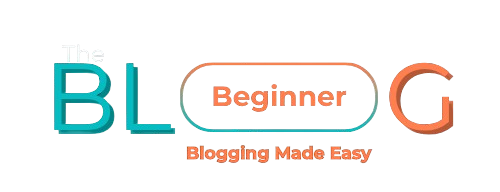Content Creation Tips for Bloggers: From Idea to Published Post (2025 Edition)
Table of Contents
🧠 Introduction
Creating blog content isn’t just about writing words on a page.
It’s about connecting with your audience, solving problems, and building long-term trust.
In 2025, content creation is more competitive than ever.
But don’t worry — if you follow a structured process, you can consistently publish blog posts that inform, inspire, and rank.
In this guide, you’ll learn exactly how to go from idea → draft → polished post — even if you’ve never written a blog article before.
💡 Step 1: Generate Content Ideas That Actually Work
🎯 Start with Your Audience:
Ask yourself:
- What questions do they have?
- What are they Googling late at night?
- What beginner mistakes are they making?
🔍 Use These Tools for Ideas:
- AnswerThePublic – shows questions people are asking
- Google Autocomplete – just start typing your topic
- Pinterest Search – amazing for blog-friendly niches
- Your own inbox or DMs – use real questions from readers!
🧠 Bonus Method: The 3W Strategy
- What is it?
- Why does it matter?
- How can I help?
💡 Example: What is content planning? Why does it matter? How do I create a simple system?
🧱 Step 2: Build a Strong Content Structure
Your blog post should feel like a mini roadmap — clear, easy to follow, and value-packed.
🧩 Common Structure That Works:
- Catchy title with a main keyword
- Short and warm introduction
- H2: Main section
- H3: Subsections that support the main point
- Bullet points, lists, bold text for skimmability
- Strong conclusion with a clear CTA (comment, read next, share)
✅ People skim — make your post easy to digest.
✍️ Step 3: Write With Clarity, Not Complexity
Blog readers aren’t looking for academic writing.
They want clarity, personality, and simplicity.
💬 Tips for Writing Like a Human:
- Write like you’re helping a friend
- Use contractions (you’re, I’ve, it’s)
- Keep paragraphs short (2–4 lines max)
- Use active voice: “Write your first post” vs “Your first post should be written”
🧠 Use This Formula:
Problem → Why it matters → Your solution → Action step
🔍 Step 4: Optimize Without Overthinking
Yes, SEO matters — but don’t let it stop your flow.
🚀 Smart On-Page Tips:
- Use the keyword in the title, intro, and 1–2 H2s
- Add internal links to related posts
- Include external links to trusted sources
- Use descriptive alt text on images
- Write a short meta description (later in Rank Math)
💡 Write first. Optimize second.
🖼️ Step 5: Add Visuals That Support Your Message
Visual content helps explain ideas faster and keeps people scrolling.
✅ What to Use:
- Screenshots (tools, settings, examples)
- Graphics made in Canva
- Checklists or templates
- Embed a short video (optional)
- Quote blocks or tweet-style highlights
✨ A good visual = a big SEO and UX boost.
📅 Step 6: Stay Consistent With a Content Calendar
Publishing “when you feel like it” = zero growth.
Consistency builds authority.
📆 How to Build a Simple Schedule:
- Pick how often you want to publish (1x/week? 2x/month?)
- Use tools like Notion, Trello, or Google Calendar
- Plan in advance: Topic → Title → Deadline
🧩 Consistency beats perfection.
✅ Step 7: Final Edits Before You Hit Publish
Don’t rush the last part! A polished post leaves a strong impression.
📌 Final Checklist:
- Check for spelling/grammar with Grammarly
- Read your post out loud
- Add internal/external links
- Insert visuals
- Set a featured image
- Preview the post on mobile view
- Add your CTA at the end (comment, share, explore another post)
🔗 Internal Navigation
👉 Want help choosing blog topics? See Start Here
👉 Ready to publish your first post? Go to Writing Tips for Bloggers
👉 Need a planner? Try our Content Planning Tools (coming soon)
💬 Final Words
Content creation is a skill — not a talent.
And like any skill, you get better with practice, feedback, and persistence.
Don’t aim for perfect.
Aim for helpful, honest, and human.
That’s what your audience (and Google) truly loves 💙
Now go write something amazing ✍️
